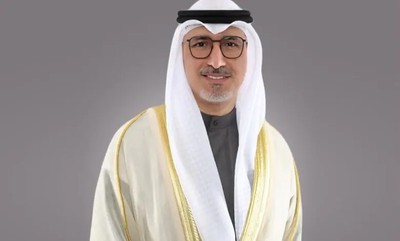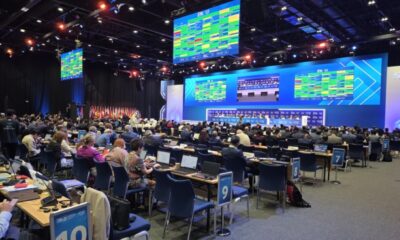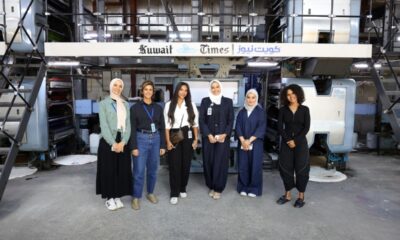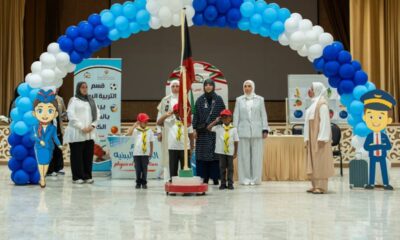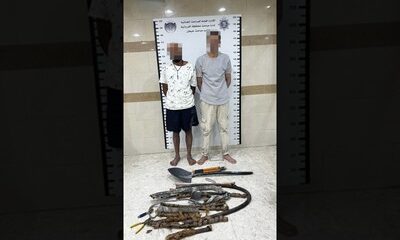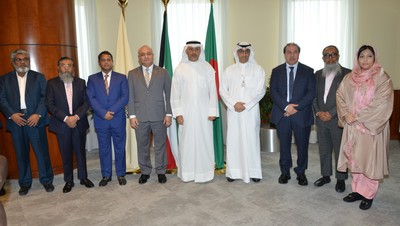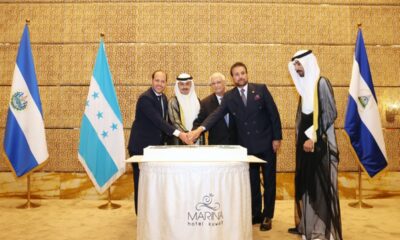KUWAIT: The Embassy of Mexico in Kuwait celebrated the 215th anniversary of Mexico’s Independence with a grand reception at the Crowne Plaza Hotel on Sunday. Kuwait’s Assistant Foreign Minister for the Americas Nawaf Abdullatif Al-Ahmad attended as guest of honor. The event was also graced by senior Kuwaiti officials, resident ambassadors, members of the diplomatic corps, the Mexican diaspora and distinguished guests.
In his remarks, Mexican Ambassador Eduardo Patricio Pena Haller highlighted the significance of Mexico’s Independence Day, recalling the historic “Grito de Dolores” of September 16, 1810, which launched the country’s struggle for sovereignty. He noted that each year, Mexicans across the world gather on this day to commemorate the nation’s independence, its history and its enduring values of freedom, dignity and solidarity.
The ambassador underscored the deep-rooted bilateral relations between Mexico and Kuwait, tracing them back half a century. “This year is especially meaningful for us as 2025 marks the 50th anniversary of the establishment of diplomatic relations between Mexico and the State of Kuwait. Over these 50 years, Mexico and Kuwait have built a relationship founded on mutual respect, cultural understanding and a common commitment to peace and development,” he said.
“Tonight’s celebration is not only a tribute to Mexico’s national day, but also to 50 years of friendship between Mexico and Kuwait. It is an opportunity to honor the past, celebrate the present and look with optimism toward the future of our partnership,” he added.
Ambassador Eduardo Patricio Peña Haller delivers his speech.
Ambassadors and diplomats pose for a photo.
Ambassadors and diplomats during the ceremony.
Mexican community members and guests during the celebration.
Ambassador Haller noted that bilateral relations have expanded across diverse fields, from political dialogue and economic exchange to academic cooperation and cultural diplomacy. “We are proud to note that trade and investment between our countries continue to grow, and that people-to-people connections are deepening, enriching both of our societies,” he said.
Looking ahead, he expressed Mexico’s eagerness to expand cooperation with Kuwait in key areas. “In this spirit, we look forward to deepening our engagement in renewable energy, education, tourism and innovation — fields where both our nations have much to share and to learn.”
Kuwait’s international role
The ambassador also praised Kuwait’s constructive presence on the international stage. “Kuwait has consistently played a constructive role in international affairs, and Mexico is proud to stand alongside Kuwait in promoting dialogue, multilateralism and the search for peaceful solutions to global challenges,” he said.
He emphasized that beyond official agreements, the true strength of the relationship lay in the warmth between the peoples of both nations. “The generosity and hospitality of Kuwaitis remind us of the values we hold dear in Mexico: Respect for community, family and friendship,” he observed.
Ambassador Haller expressed his gratitude to His Highness the Amir Sheikh Meshal Al-Ahmad Al-Jaber Al-Sabah, His Highness the Crown Prince Sheikh Sabah Al-Khaled Al-Hamad Al-Sabah, His Highness the Prime Minister Sheikh Ahmad Al-Abdullah Al-Ahmad Al-Sabah, Minister of Foreign Affairs Abdullah Ali Abdullah Al-Yahya, the government and the people of Kuwait for their continued friendship and support.
During the ceremony, Ambassador Haller honored Mexican expatriate Lilia López Benítez with the Ohtli Award 2025, in recognition of her dedication, leadership and commitment to strengthening the Mexican community abroad. The Ohtli Award is among the highest honors conferred by the Mexican government through the Instituto de los Mexicanos en el Exterior (IME), or Institute for Mexicans Abroad, which supports expatriate communities by promoting their integration in host countries and fostering enduring ties with Mexico.
Mexico commemorates its Independence Day every year on September 16, recalling the historic uprising led by Father Miguel Hidalgo in 1810 that culminated in independence from Spanish rule. Today, the anniversary is celebrated worldwide by Mexican communities and diplomatic missions as a symbol of national pride and cultural identity.






